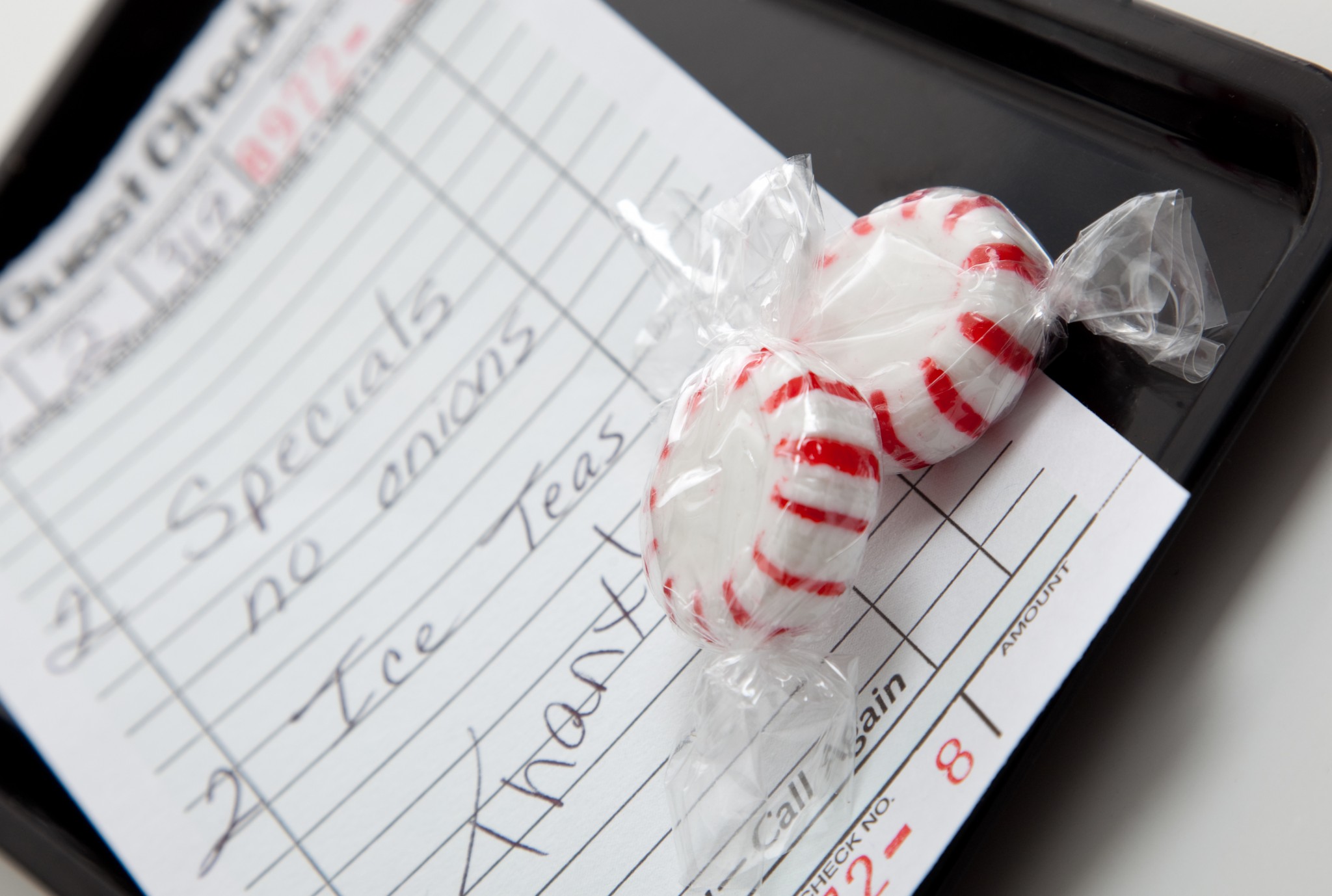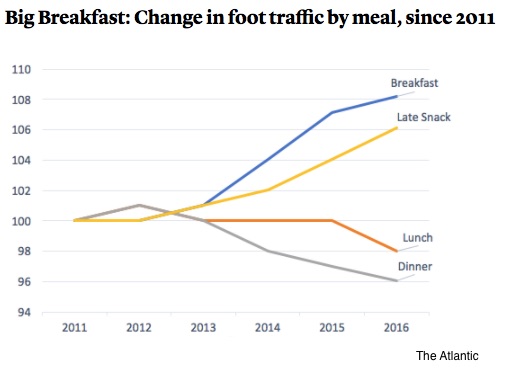Used to be we would prepare dinner at home while eating out was occasional.
No more.
Now, especially for lunch and dinner, someone else prepares the food.
The Mystery
The Atlantic called it “The Great Convergence.” The difference between what we spend to eat out (brown line) and spend to eat at home (purple line) has shrunk to zero:
As a result, you would think that the restaurant business is thriving. But for individual establishments, the outlook is not so rosy. In the fast casual sector–think Chipotle, Panera, Whataburger–overall sales are up 9% while same store sales are down 2%. For the 12 months preceding February 2017, independent restaurant units are down by 4%.
We could say that the environment is tougher. There are too many restaurants because entry and exit are relatively simple. Then, adding labor with a higher minimum wage, workers eating at their desks, and households ordering prepared food at home, you might have a solution to the mystery.
But not yet.
We have to add that no one nows why people are increasingly eating breakfast out:
Our Bottom Line: Monopolistic Competition
As economists, we can say that the market structure in which restaurants compete is their problem and the solution to our mystery.
In monopolistically competitive markets, restaurants face many other relatively small businesses that can easily enter and exit a neighborhood. Because there are so many of them, they lack the power to control price. Still, when they establish something unique that provides a bit of a monopoly, they can thrive. And that is why their market has contradictory characteristics. It blends perfect competition and monopoly:
So why do we have disappearing restaurants but more breakfast traffic? Monopolistic competition.
My sources and more: Last June, The Atlantic had the restaurant story. If you want to take the next step and go for the dry industry data that lets you do the analysis,, do go to the USDA and NPD group.









